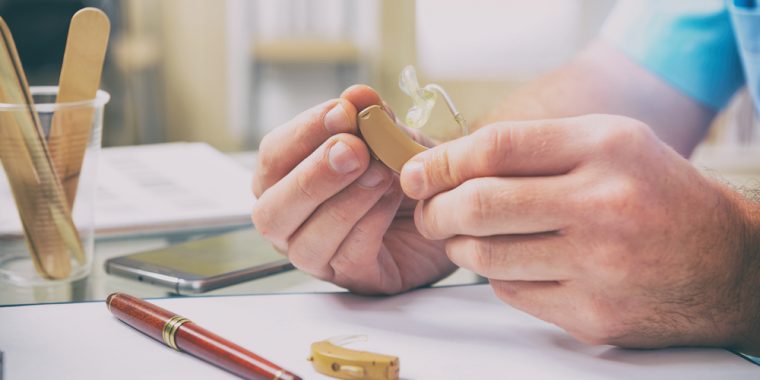Simple Steps to Enhance Hearing Aid Performance:
Maintaining your hearing aid through daily cleaning and regular service is extremely important. Proper care helps retain optimum hearing conditions, extends the life of your hearing aid, and ensures proper hygiene.
Troubleshooting:
Before taking your hearing aids in for servicing, check this list of symptoms and possible solutions. If the problem persists, we can help you.
- Hearing instrument is “dead”
- Hearing instrument is not loud enough
- Performance is inconsistent
- The sound is distorted or unclear
Caring for Hearing Aids:
Maintaining your hearing aids through daily cleaning and regular service is extremely important. The environment for in-the-ear hearing aids is moist and warm with relative humidity between 40-70% and a constant temperature of 98 degrees. Earwax, which is a combination of salt and corrosive body acid, can accumulate in the ears and on the hearing instrument.
Not surprisingly, these conditions can be harmful to electronics. Proper hearing aid care helps retain optimum hearing conditions, extends the life of your hearing aid, and ensures healthy ear hygiene.

How to clean your hearing aids?
Remove earwax – It is important to remove earwax from your hearing aid to prevent temporary malfunction or permanent damage. When you purchase your hearing aids, you should receive cleaning tools including a soft brush and small picks or loops. Follow the manufacturer’s instructions for cleaning your hearing aids. If you cannot remove all the earwax, your hearing professional can help.
When you remove your hearing aids at night, wipe them with a dry soft cloth. Do not use water, alcohol swabs or cleaning solvents as they can break down or damage your hearing aids.
Don’t drop your hearing aids
Dropping your hearing aids on a hard surface can damage the instruments. When you’re learning how to correctly place and remove your hearing aids, do it from a seated position with a towel or pillow on your lap.
Proper Storage
When not in use, keep your hearing aids away from heat and moisture and store them in a dry, cool place. Ask your hearing specialist about a dehumidifying box for storage. These boxes are designed to safely and effectively remove moisture that can corrode sensitive circuitry.
Leave the battery door open to preserve battery power when not in use.
When not to wear your hearing aids?
While most new hearing aids today are designed for water resistance, don’t wear your hearing aids:
-
- In the shower or sauna
- Swimming
- When using a hair dryer
- While applying hair spray or other types of spray-on products. Apply hair products first, and then insert your hearing aids.
